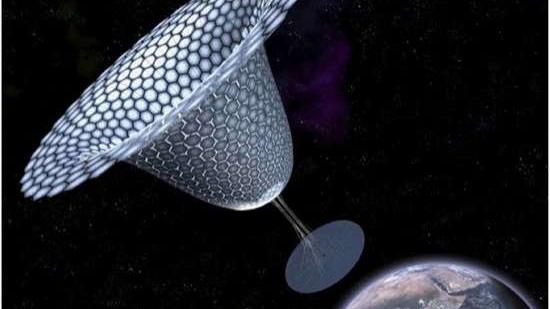In the third century BCE, King Hiero II of Syracuse asked Archimedes to devise a number of death traps to thwart Roman invaders. Among the many designs the great inventor drew up was a solar death ray. The basic idea was to build an array of mirrors that could reflect rays of light into a central blast, causing Roman ships to burst into flame. It’s unlikely the weapon ever made it past the blueprint stage, but it became an incredibly influential model nonetheless. Archimedes was perhaps the first solar power convert, searching for a way to take advantage of the inconceivable amount of energy our friendly neighborhood star barfs up every second.
The only thing that would make Archimedes’ solar death ray more fascinating is if it was technically feasible, socially benevolent, and in space. That’s where John Mankins comes in. A NASA veteran, aerospace entrepreneur, and space-based solar power (SBSP) expert, Mankins designed the world’s first practical orbital solar plant. It’s called the Solar Power Satellite via Arbitrarily Large PHased Array, or SPS-ALPHA for short. If all goes to plan, it could be launched as early as 2025, which is sooner than it sounds when it comes to space-based solar power timelines.
Scientists have been aware of the edge the “space-down” approach holds over terrestrial panels for decades. An orbiting plant would be unaffected by weather, atmospheric filtering of light, and the sun’s inconvenient habit of setting every evening. SBSP also has the potential to dramatically increase the availability of renewable energy.
